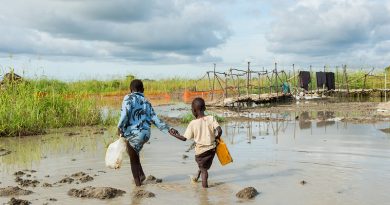New Zealand Announces Initiative to Make Sanitary Products Free in Schools
Lauren-Marie Diawatan
Staff Writer
New Zealand Prime Minister Jacinda Ardern announced on February 18 that starting this June, all New Zealand schools will provide free sanitary products to tackle period poverty across the country, reports Reuters. “Period poverty” refers to the poor accessibility to pads or tampons that can negatively impact education, health, and employment, according to The New York Times.
The New Zealand Ministry of Education states that all state and state-integrated schools, from primary to secondary education, and kura – state schools based on Maori culture and values, according to the New Zealand Education for Parents – can now choose to receive free period items for their students. The first phase of distribution will include pads and tampons, but the Ministry of Education will consider expanding to provide menstrual cups and eco-friendly sanitary underwear. NPR News reports that the entire program will cost an estimated $18 million through 2024.
The Ministry of Education report cites a Youth19 Survey explaining that 12 percent of year 9 to year 13 students find period products inaccessible because of their price. The report also references research from the University of Otago, which furthers that 94,788 girls from New Zealand’s poorest households may have difficulty purchasing period products, causing them to miss school because of their menstrual cycle. Prime Minister Ardern states that “providing free period products at school is one way the government can directly address poverty” and improve the well-being of the country’s children, continues Reuters. She hopes to see “improved engagement” and “reduced financial hardship amongst families,” with less students missing school because of their period.
The country-wide plan to rollout free period products in schools was announced following the widespread success of the Waikato trial phase, continues the Ministry of Education report. The trial included fifteen schools and kura in the Waikato region, all receiving enough free period products to account for 3,200 people. The Ministry of Education worked alongside five suppliers to provide a variety of period and tampon products. These suppliers employed different engagement strategies, with some offering their products to be ordered in advance and others installing dispensers in bathrooms. The Waikato trial phase concluded with students reporting that “they felt heard and cared for,” and that they are appreciative of the choices provided for them.
The initiative began with Dignity NZ, an organization that works to provide free sanitary items for New Zealand’s students and youth. The founder, Miranda Hitchings, stated that her organization approached schools, finding that period poverty was “incredibly prevalent” and that many school nurses and teachers were personally paying for products for their students, continues The New York Times. Hitchings and her cofounder, Jacinta Gulasekharam, began a campaign in 2019 pushing for free period products, submitting a petition of 3,000 signatures to New Zealand’s parliament. Julie Anne Genter, a member of the country’s Green Party and the then Minister of Women, brought the cause to the Prime Minister’s office.
New Zealand is the second country to make period products free for those who needed them, following Scotland, who did so in November 2020, according to The New York Times. Like the initiative in New Zealand, Scotland’s legislation expands on previous accessibility efforts to make free access to tampons and pads in education and public buildings a legal right. Scotland’s law includes collaborating with local authorities to make period products free of charge for everyone.


